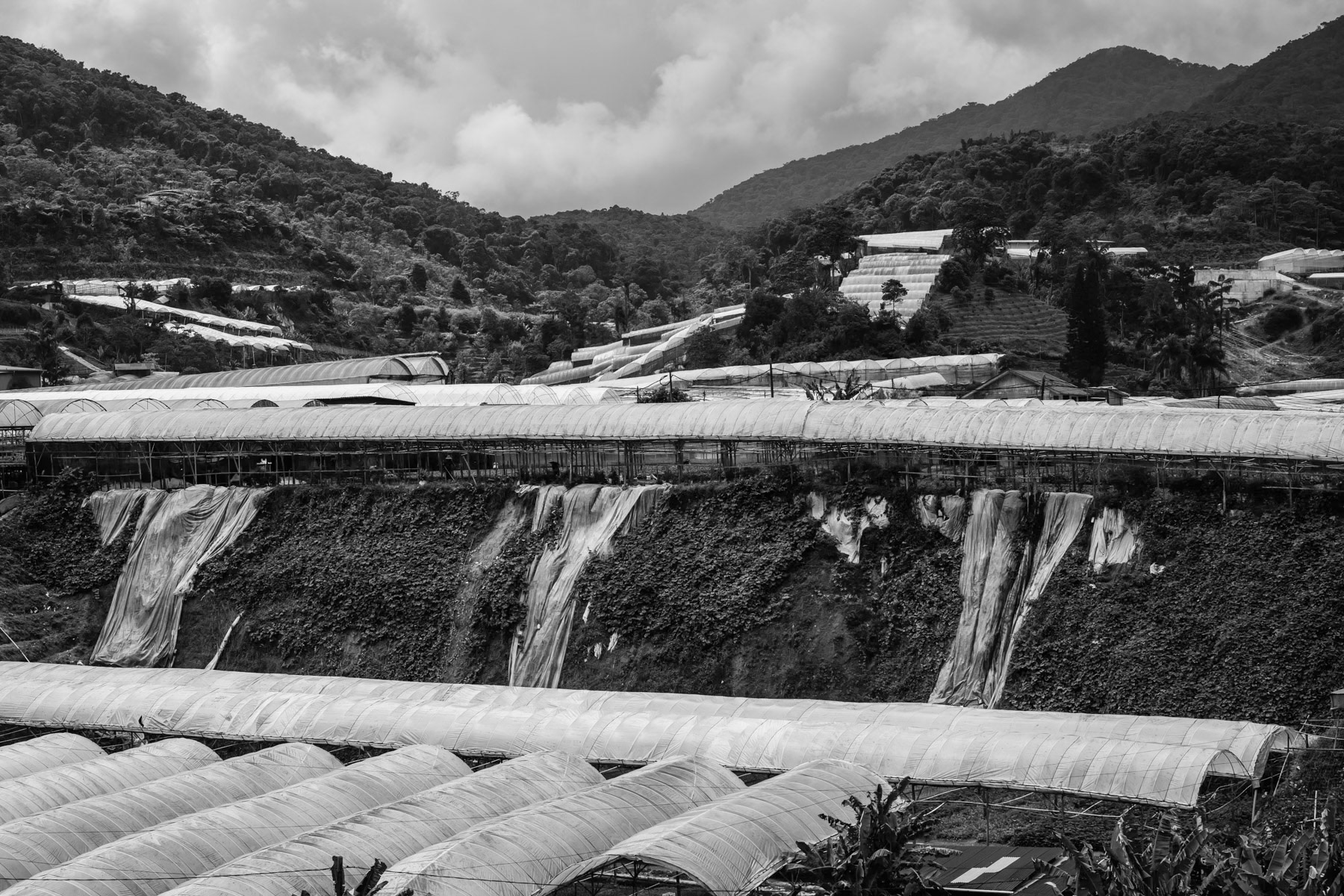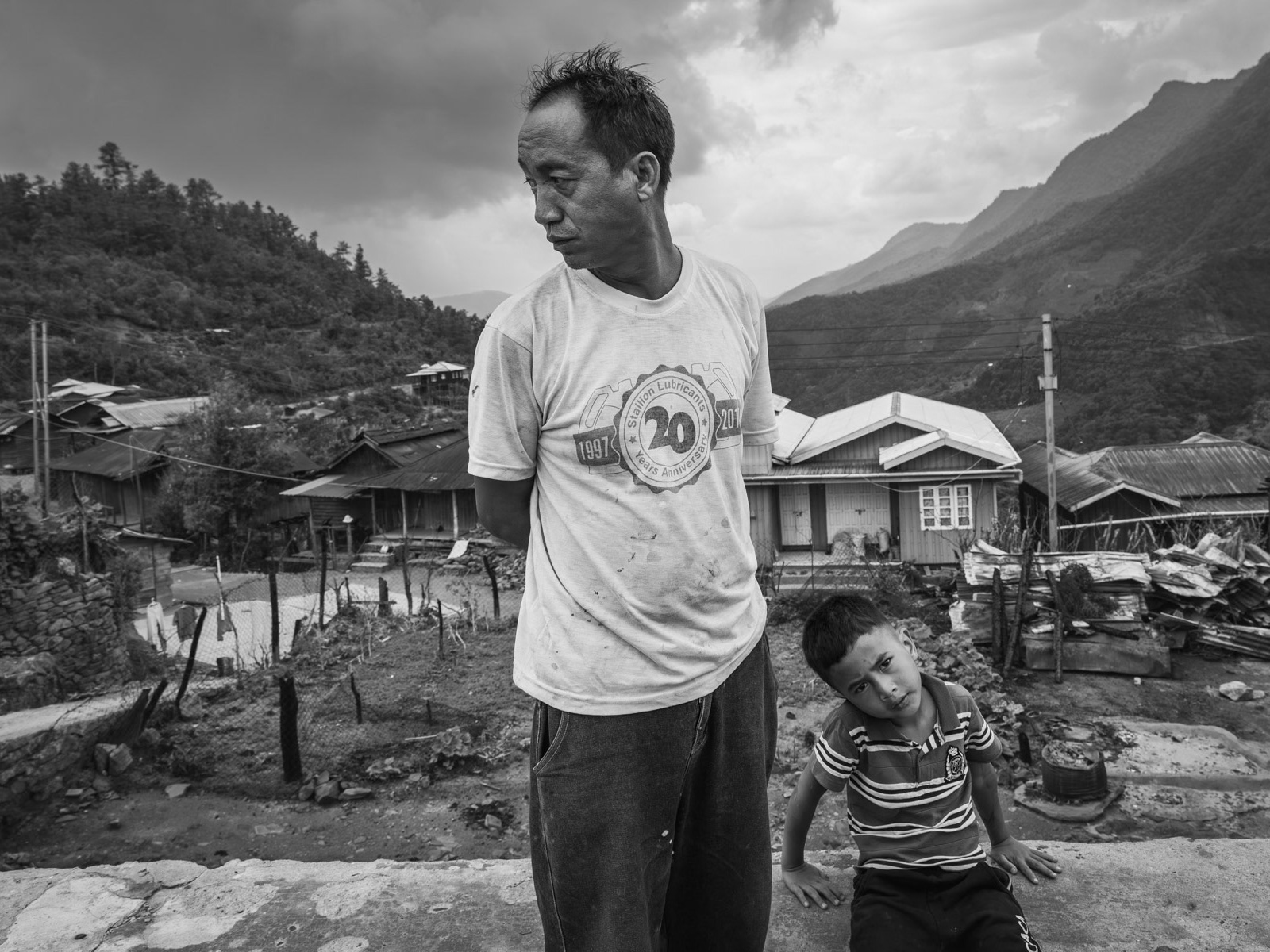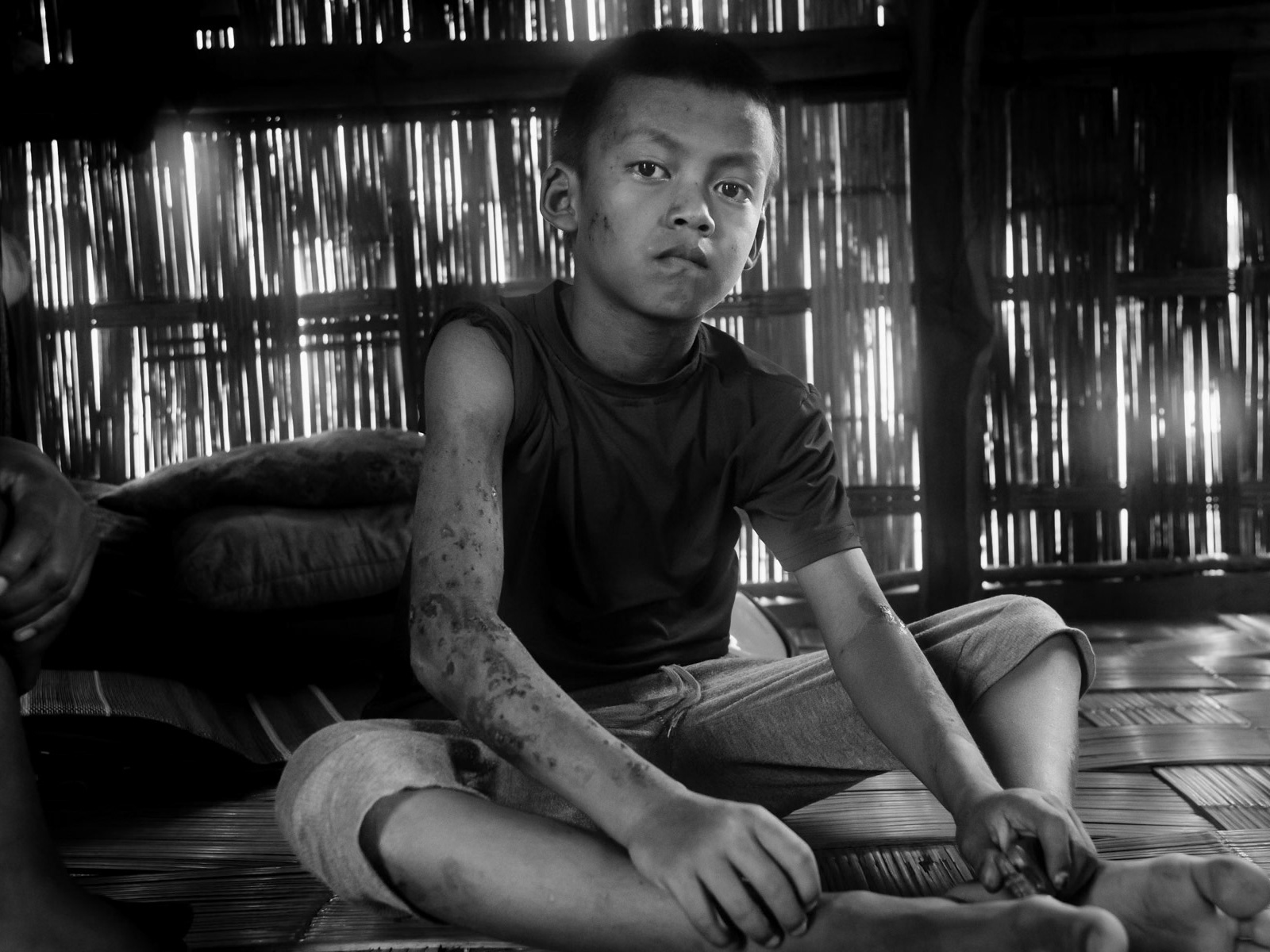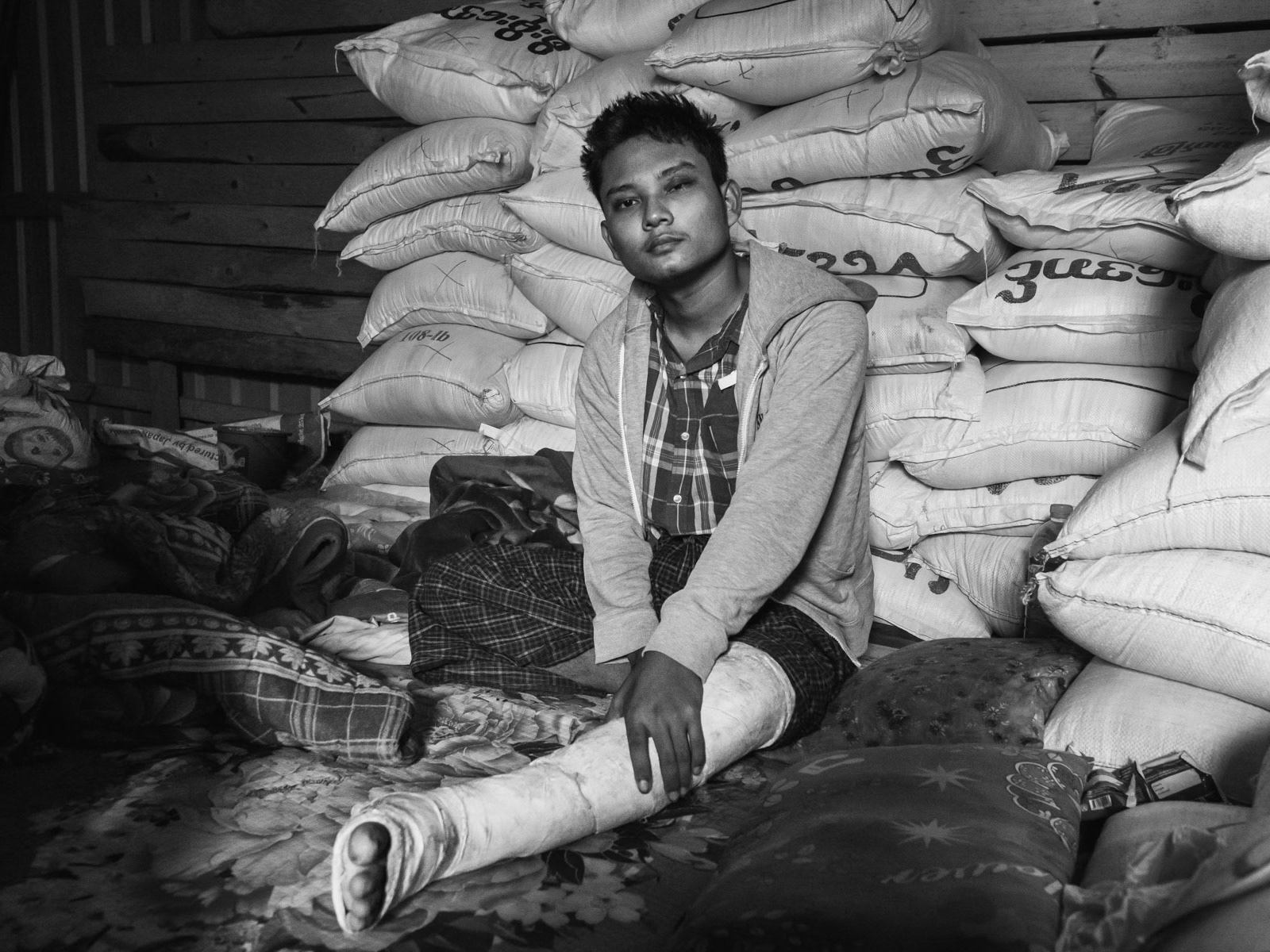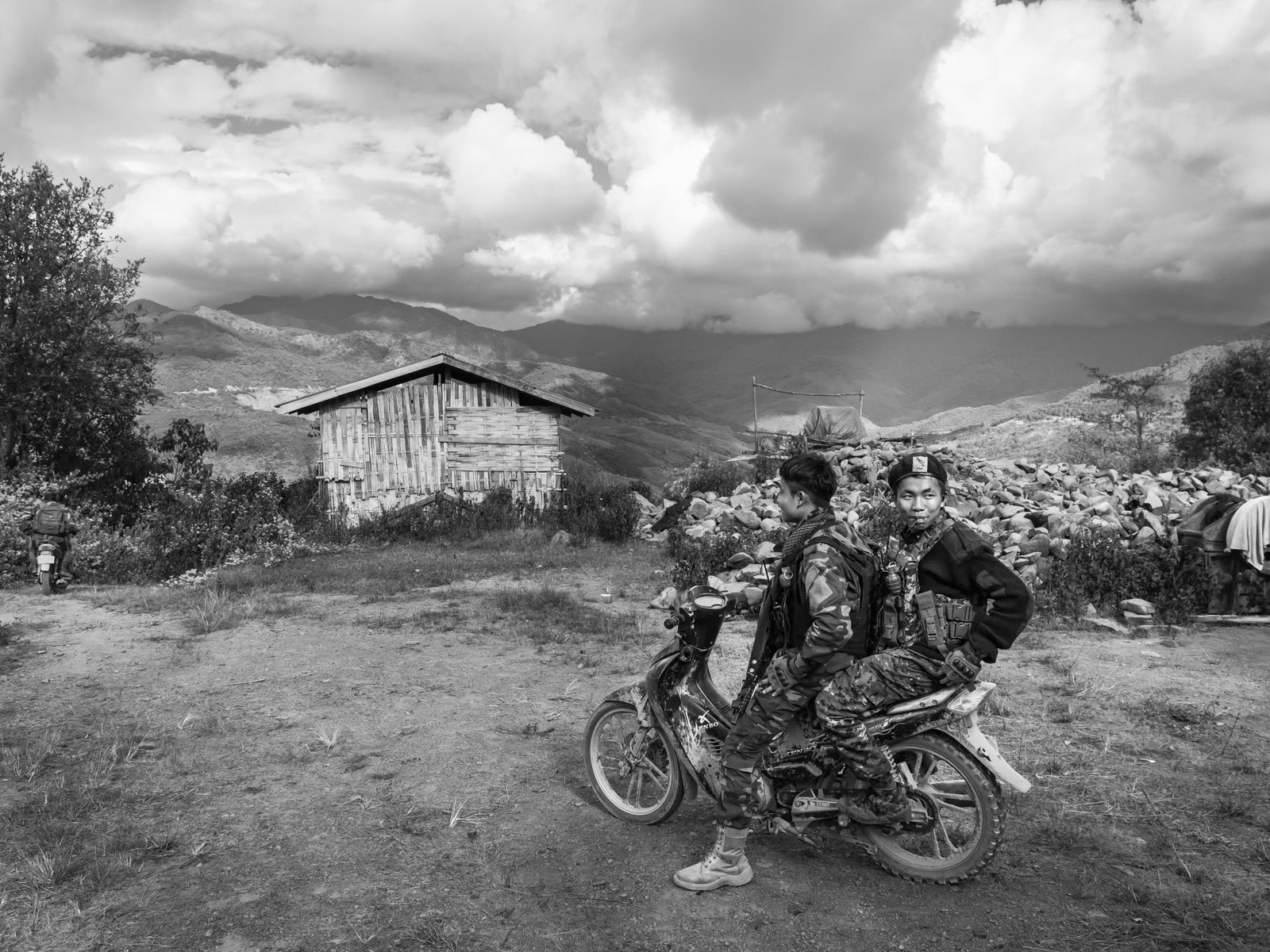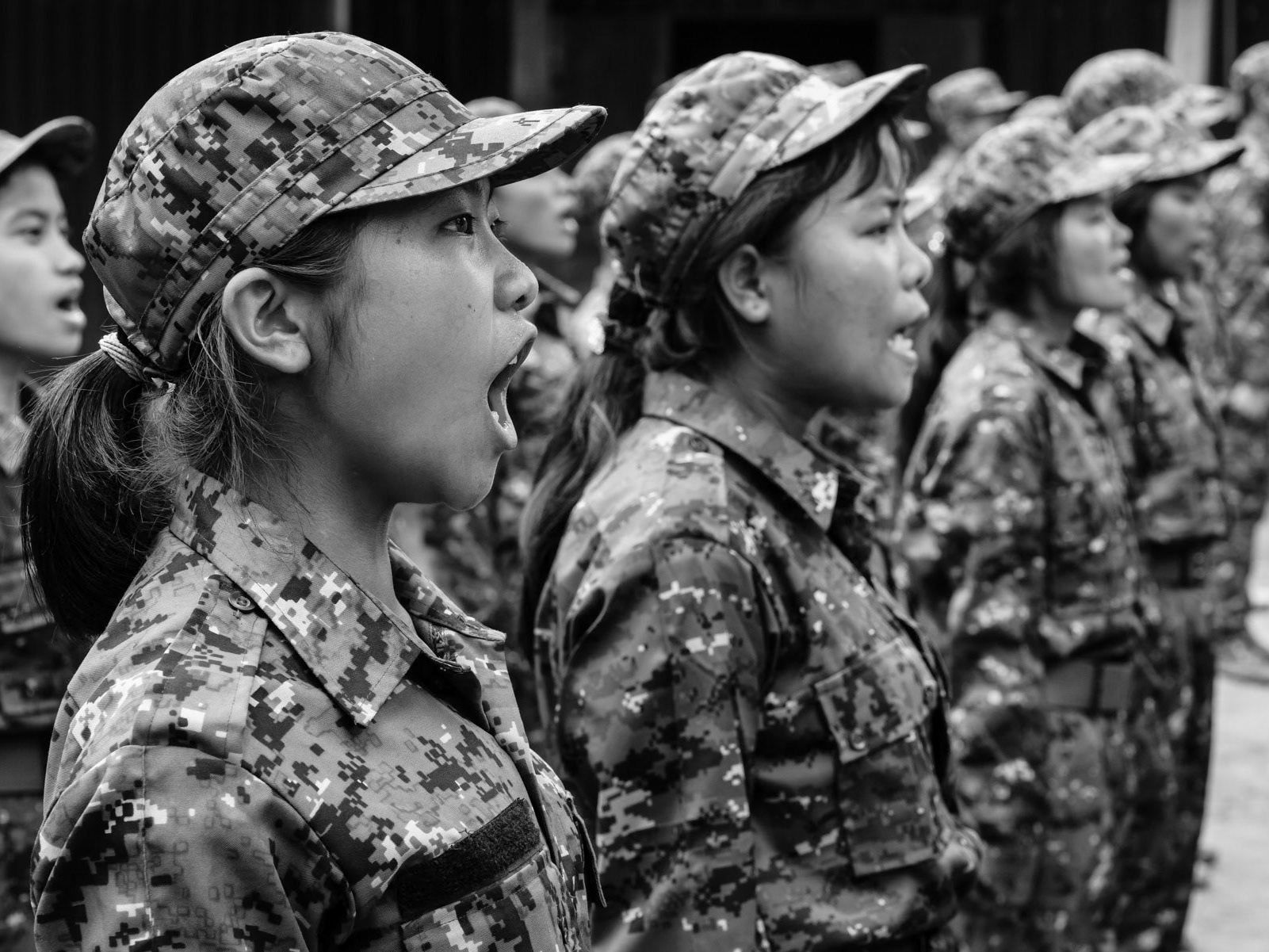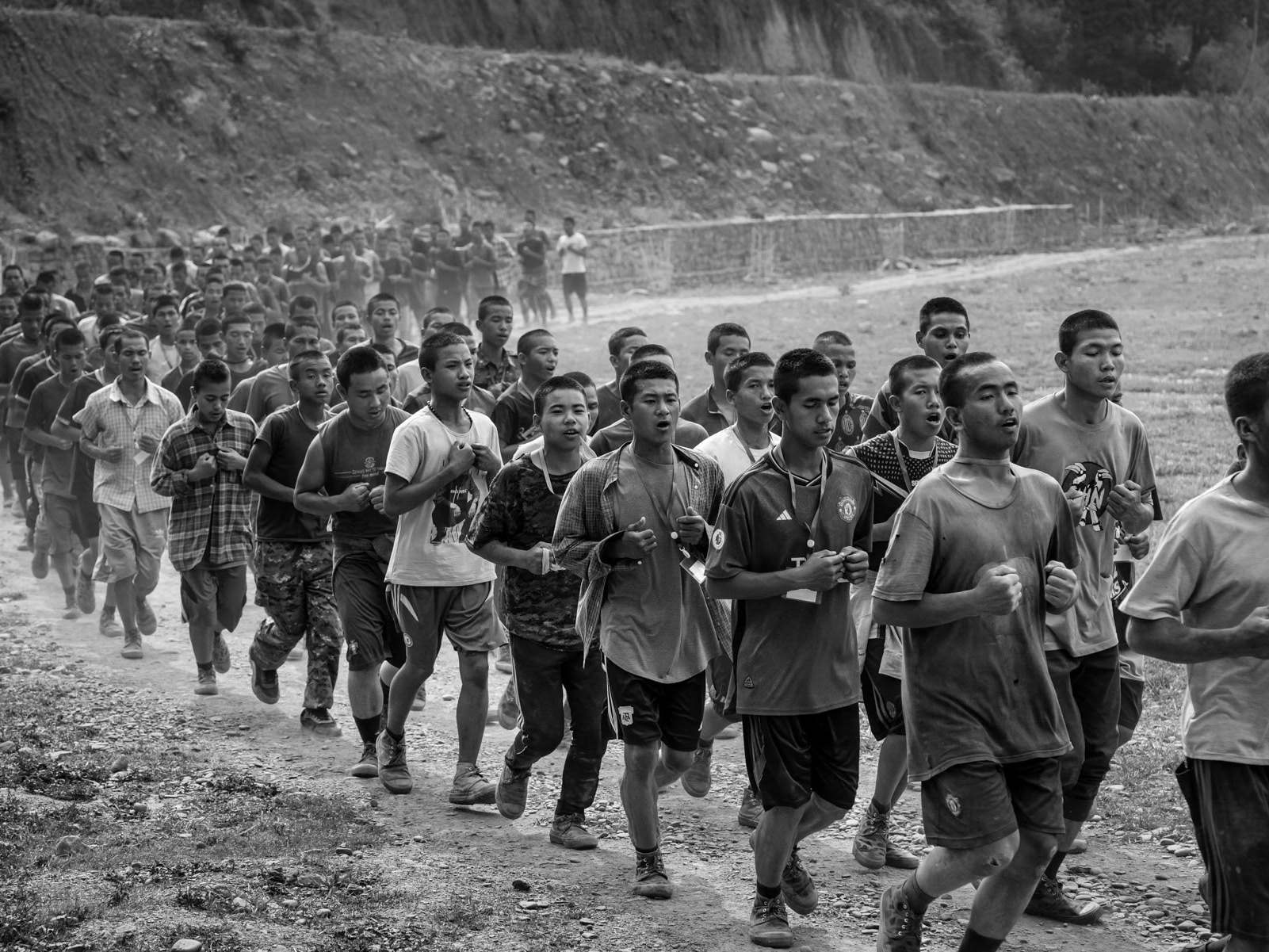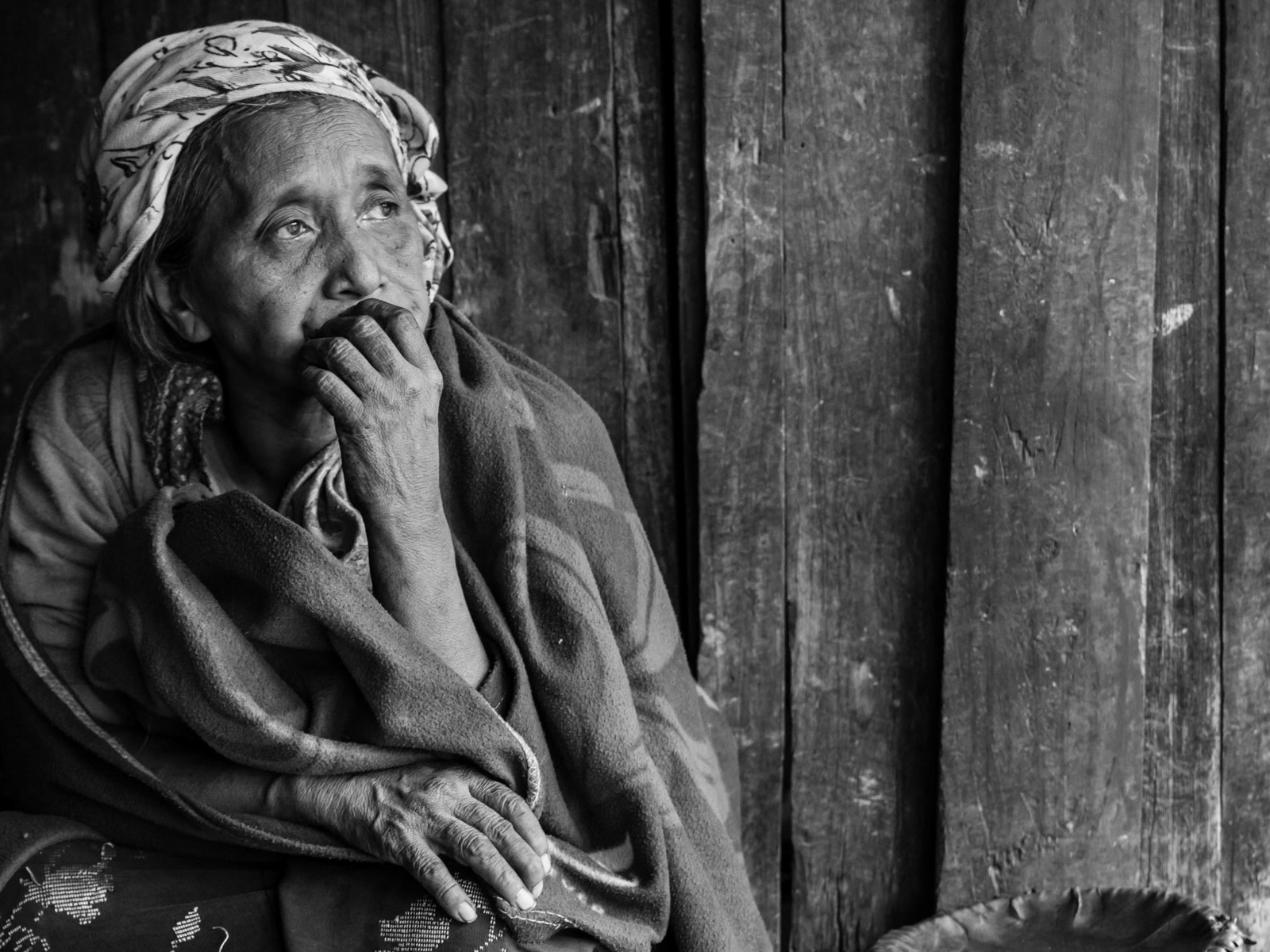Chin State in Myanmar has witnessed an exodus of refugees fleeing war and persecution, driven by conflict and severe human rights abuses. Many seek safety in neighboring countries, particularly India and Malaysia, where their struggles for survival persist.
In India, refugees often cross the border into Mizoram or Manipur states, primarily to access medical care. The influx includes individuals requiring heavy surgical interventions and treatment for war injuries. Despite finding temporary relief, the lack of official recognition as refugees exacerbates their plight, leaving them without legal protection or access to formal support systems.
Malaysia hosts over 100,000 Chin refugees, many of whom endure harsh conditions. Lacking official refugee status, they are confined to marginalized jobs, with many working on agricultural plantations in the Cameron Highlands. These roles are grueling, with long hours, minimal pay, and unsafe working environments. Access to education and healthcare remains limited, forcing refugees into cycles of poverty and insecurity. Moreover, the constant threat of arrest and deportation by immigration authorities adds to their distress, leaving them in a precarious legal and social position.
Neither India nor Malaysia has ratified the 1951 Refugee Convention or its 1967 Protocol, leaving Chin refugees without formal recognition or guaranteed rights. This lack of protection underscores the urgent need for international and regional advocacy to address their vulnerabilities, ensure basic human rights, and provide pathways for sustainable livelihoods. For Chin refugees, the quest for safety continues to be fraught with challenges.

Family from Chin State in Myanmar in their temporary shelter of a farm where the husband is employed as a farm worker. More than 20,000 refugees from Chin State in Burma work in farms around Cameron Highlands in Malaysia, May 2024
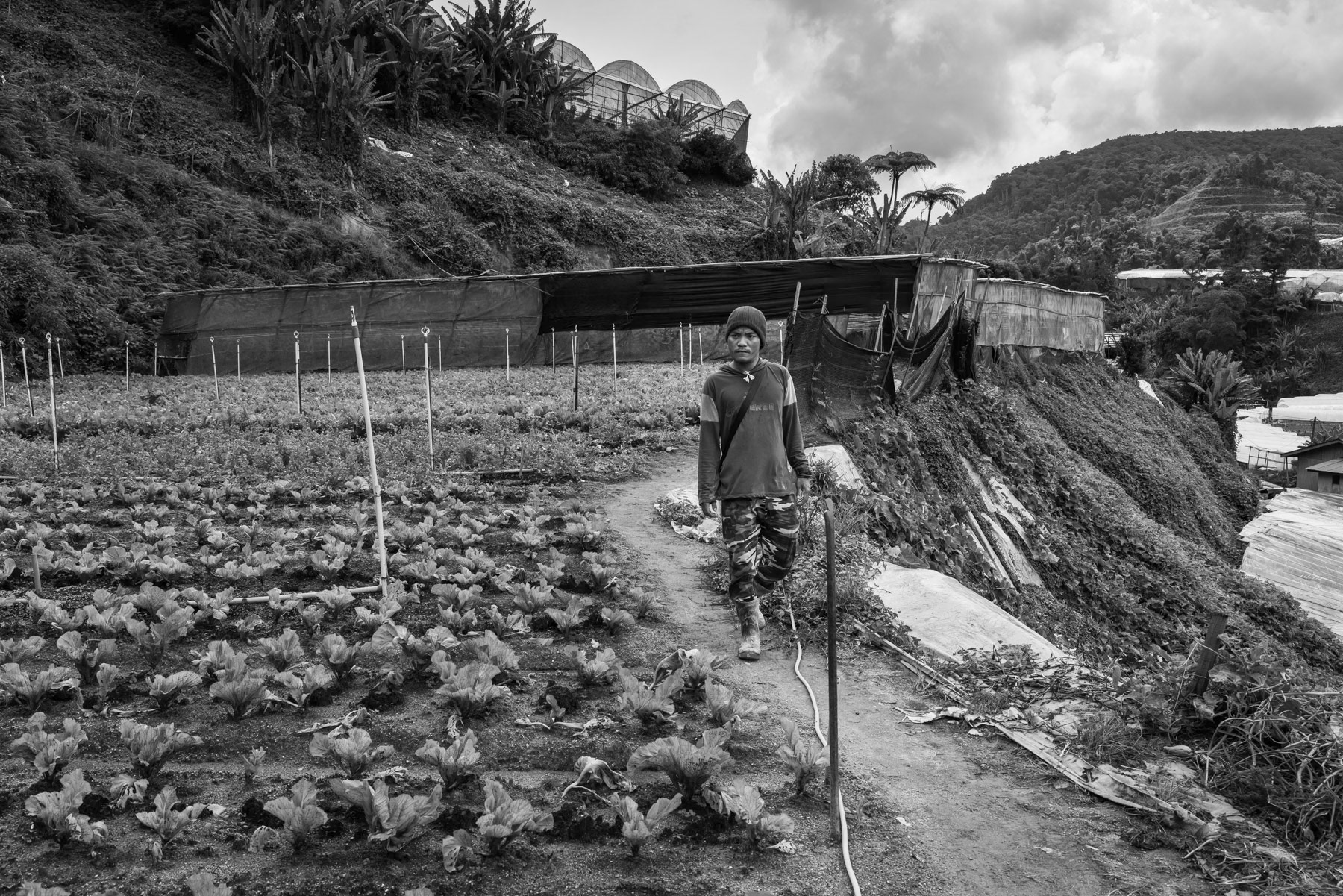
A farm worker from the Chin community in Kampung Raja, working up to 12 hours a day and earning a very low salary and at risk of being arrested for working while being a refugee. Cameron Heighlands in Pahang, Malaysia, May 2024

Chin community school for children of Chin refugees working in the nearby plantations in Cameron Highlands in Malaysia. Malaysia has over 100,000 Chin refugees from Myanmar. Kampung Raja, Pahang, Malaysia, May 2024
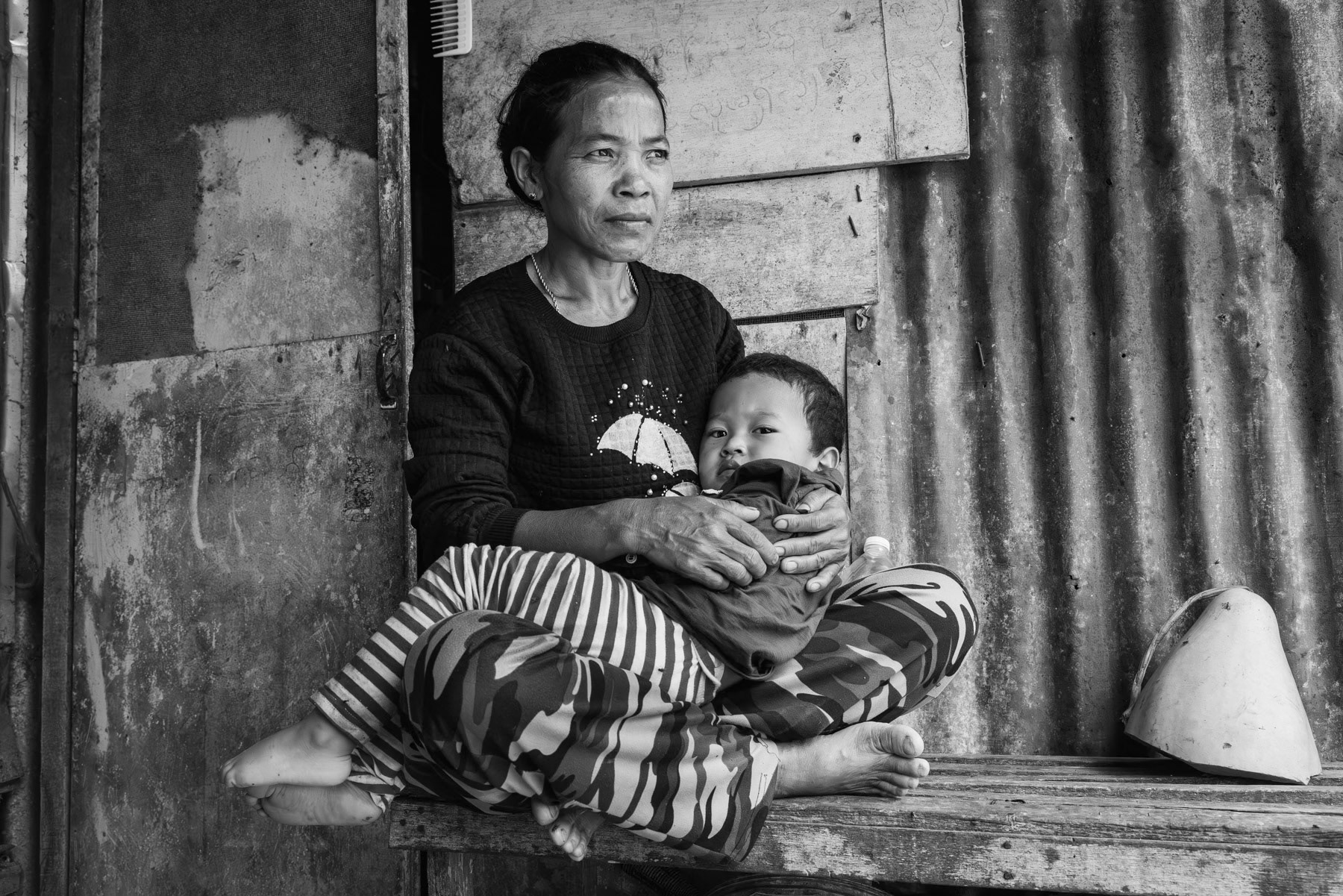
Chin mother and her child in Kampung Raja, a place where thousands of Chin people from Myanmar work as farm labour for very low salaries. Refugee status is not recognised in Malaysia and as such refugees are frequently victim of arrests and even deportation to their country of origin. Cameron Heighlands, Malaysia, May 2024
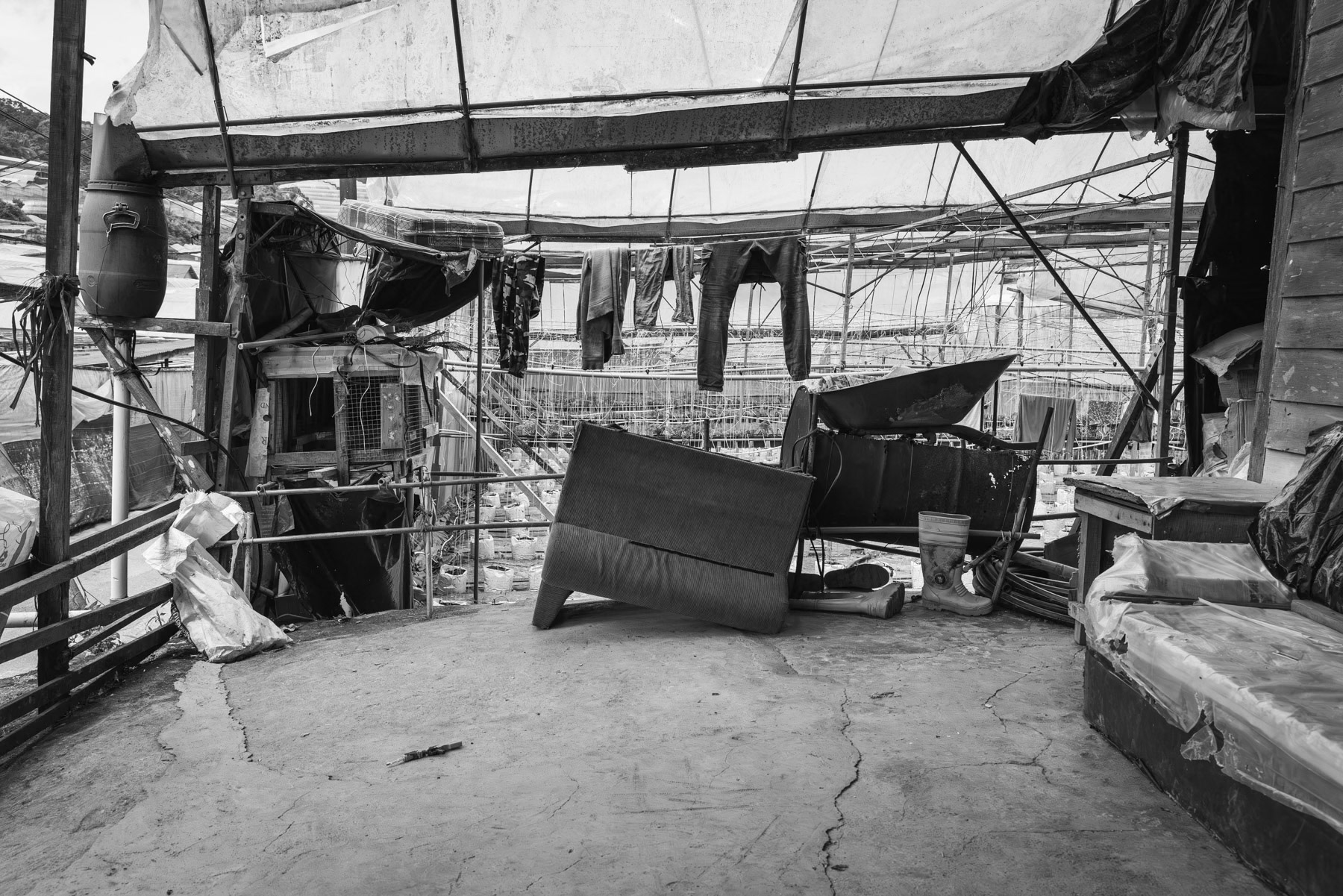
Shelter for farm workers. Most of the workers are refugees or migrants coming from different parts of Myanmar. Kampung Raja in Cameron Heighlands, Pahang, Malaysia, May 2024
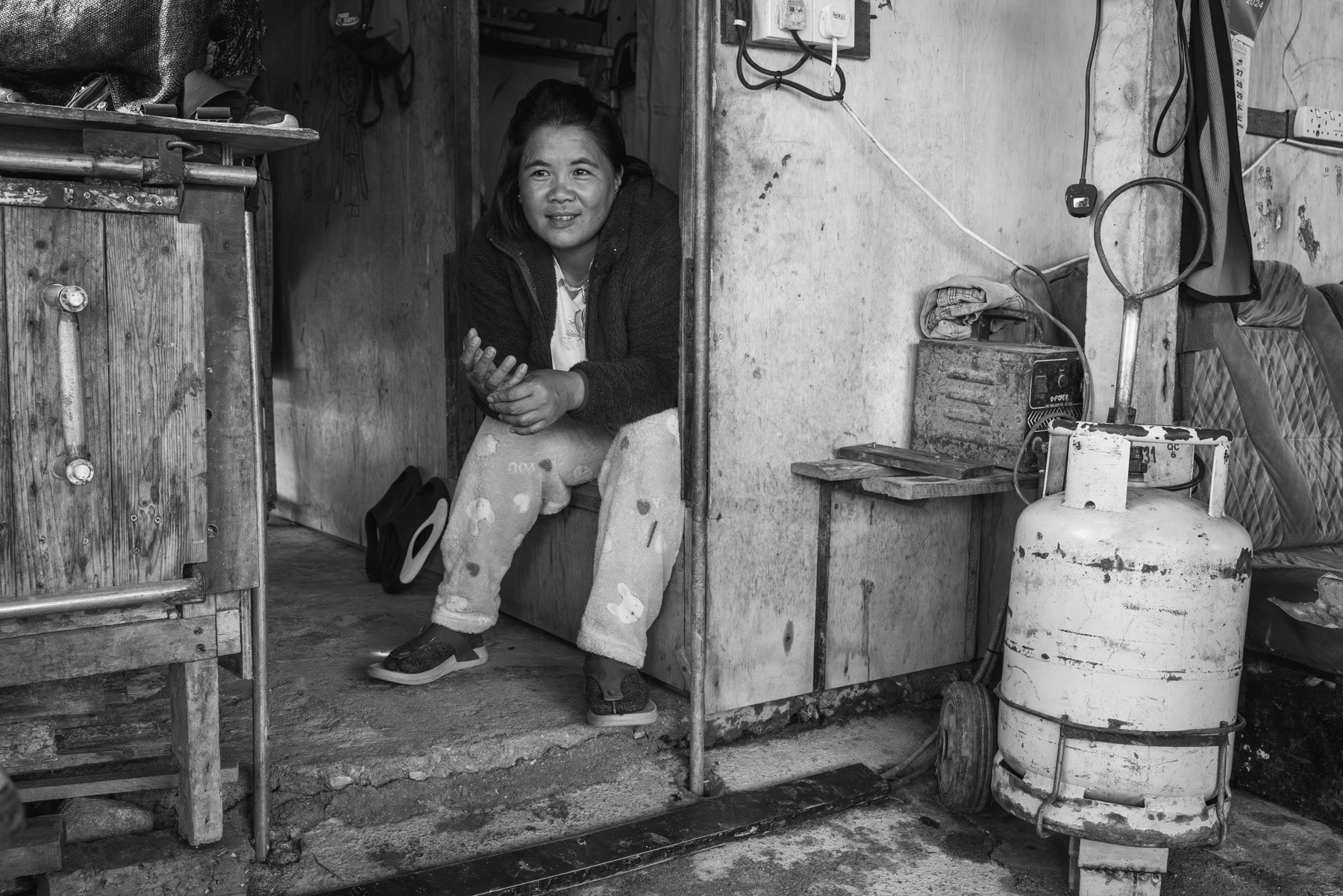
Refugee from Chin State in Myanmar in a shelter for farm workers in Cameron Heighlands in Pahang, Malaysia, May 2024

Shelter for farm workers. Most of the workers are refugees or migrants coming from different parts of Myanmar. Kampung Raja in Cameron Heighlands, Pahang, Malaysia, May 2024

Chin refugees from Hakha in Myanmar working as unskilled labour in the farms of Cameron Heighlands in Pahang, Malaysia, May 2024

Chin refugees from Myanmar working and living agriculture farms in Cameron Heighlands in Pahang, Malaysia, May 2024

A farm worker from the Chin community in Kampung Raja, working up to 12 hours a day and earning a very low salary and at risk of being arrested for working while being a refugee. Cameron Heighlands in Pahang, Malaysia, May 2024
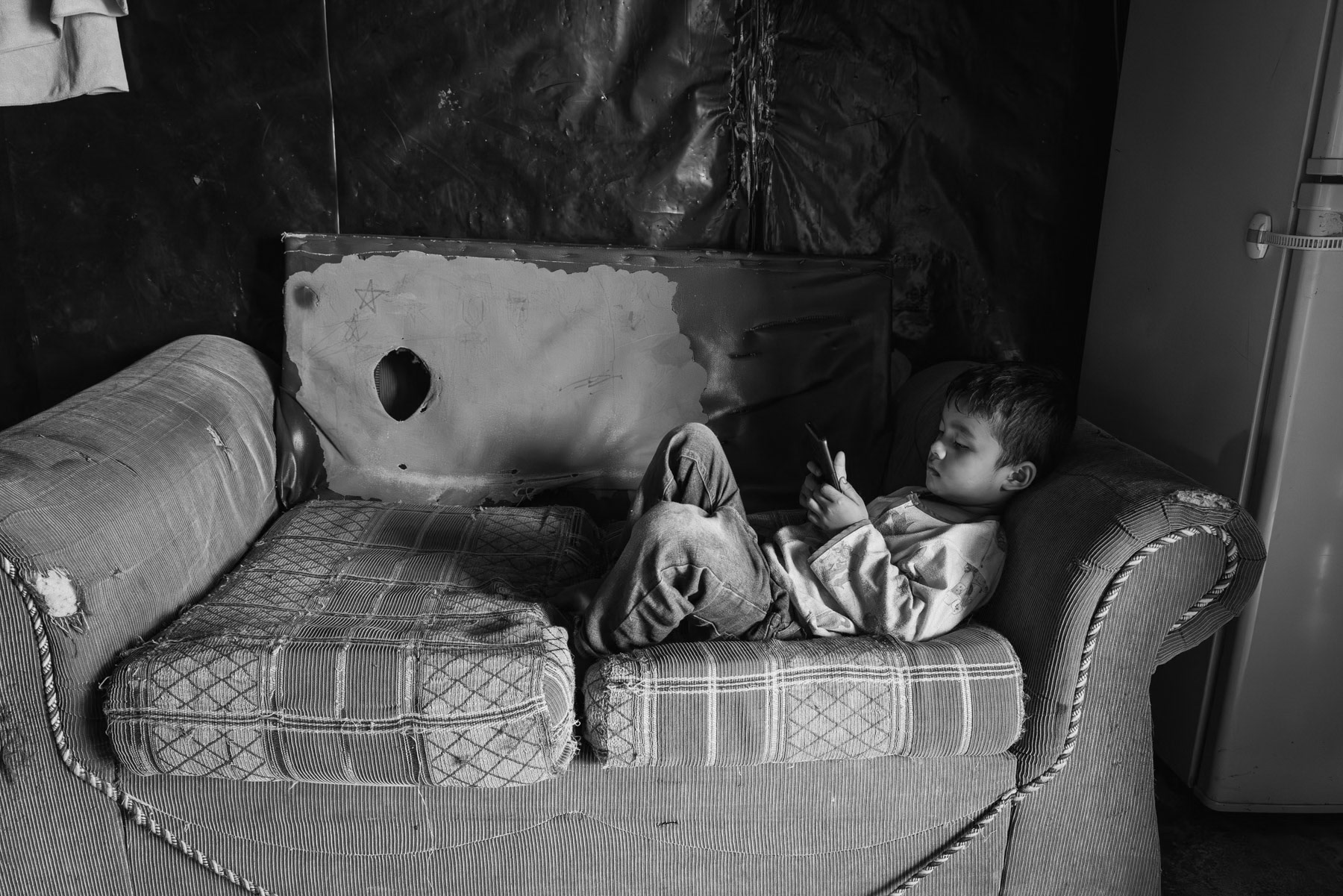
Child from the Chin community in Kampung Raja where his parents work up to 12 hours a day in farms earning very low salaries and at risk of being arrested for working while being refugees. Cameron Heighlands in Pahang, Malaysia, May 2024

Chin refugee from Myanmar working and living in farms in Cameron Heighlands in Pahang, Malaysia, May 2024

A farm worker from the Chin community in Kampung Raja, working up to 12 hours a day and earning a very low salary and at risk of being arrested for working while being a refugee. Cameron Heighlands in Pahang, Malaysia, May 2024
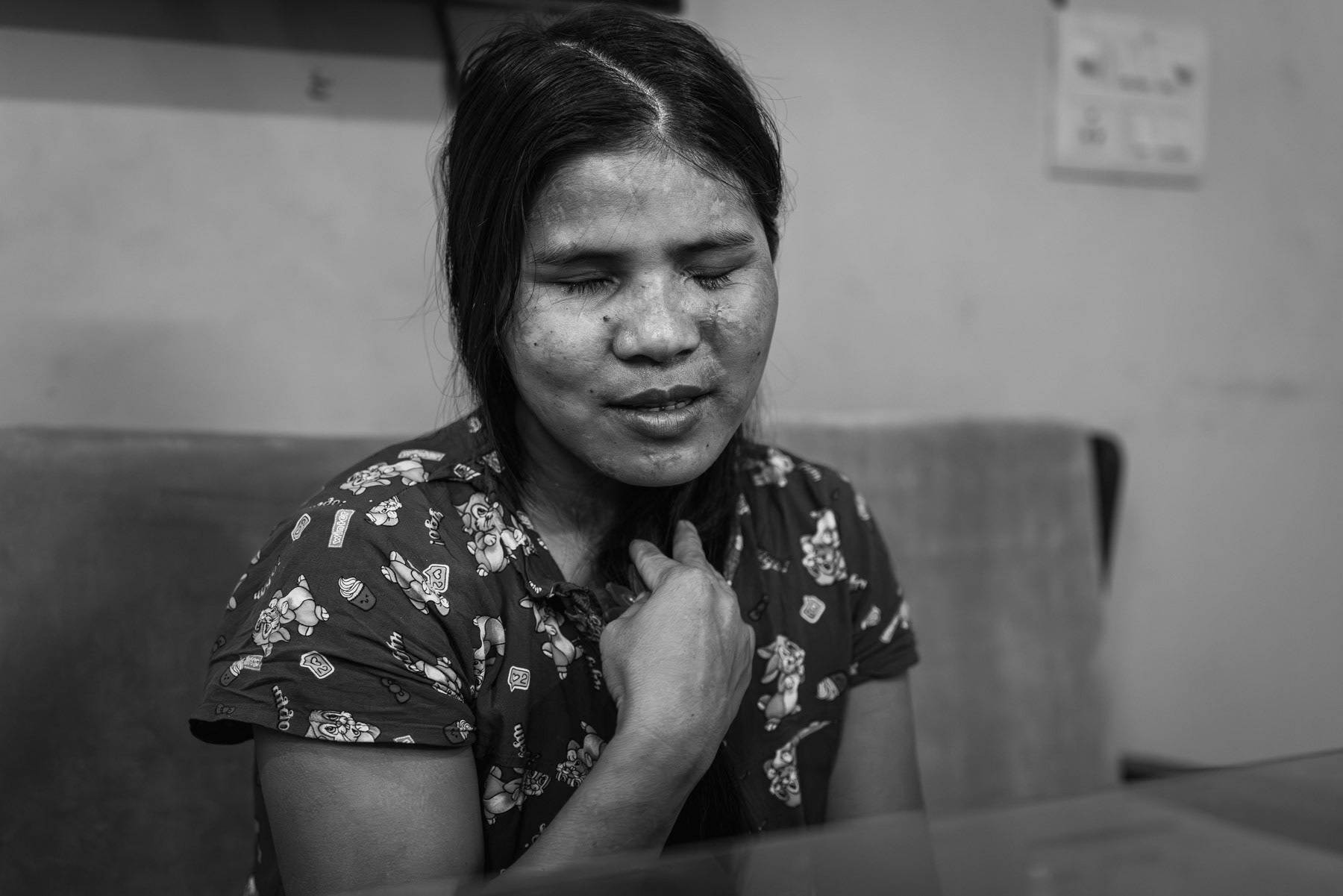
Pamsang, 29 years, is from Matupi in Chin State in Myanmar and was a civilian victim of an airstrike on her house. The military dictatorship carried out airstrikes on 15 November 2023 in Wanglu village near Matupi. Her 3 children, husband and bother in law died instantly. That day 11 people died in the village, mainly young children. She was treated for severe head and leg wounds in hospitals in Mindat and Mandalay before making her way to Aizawl in India for further surgery. Now in New Delhi for eye surgery as she is totally blind since the airstrike. Her right eye is lost and a marginal sight recovery on the left eye has occured since the eye surgery. The military regime in Myanmar has systematically used air strikes on civilian populations, schools and medical facilities without any military goal except traumatising the population and committing relentless unpunished war crimes. Chin community safe house in New Delhi, India, May 2024
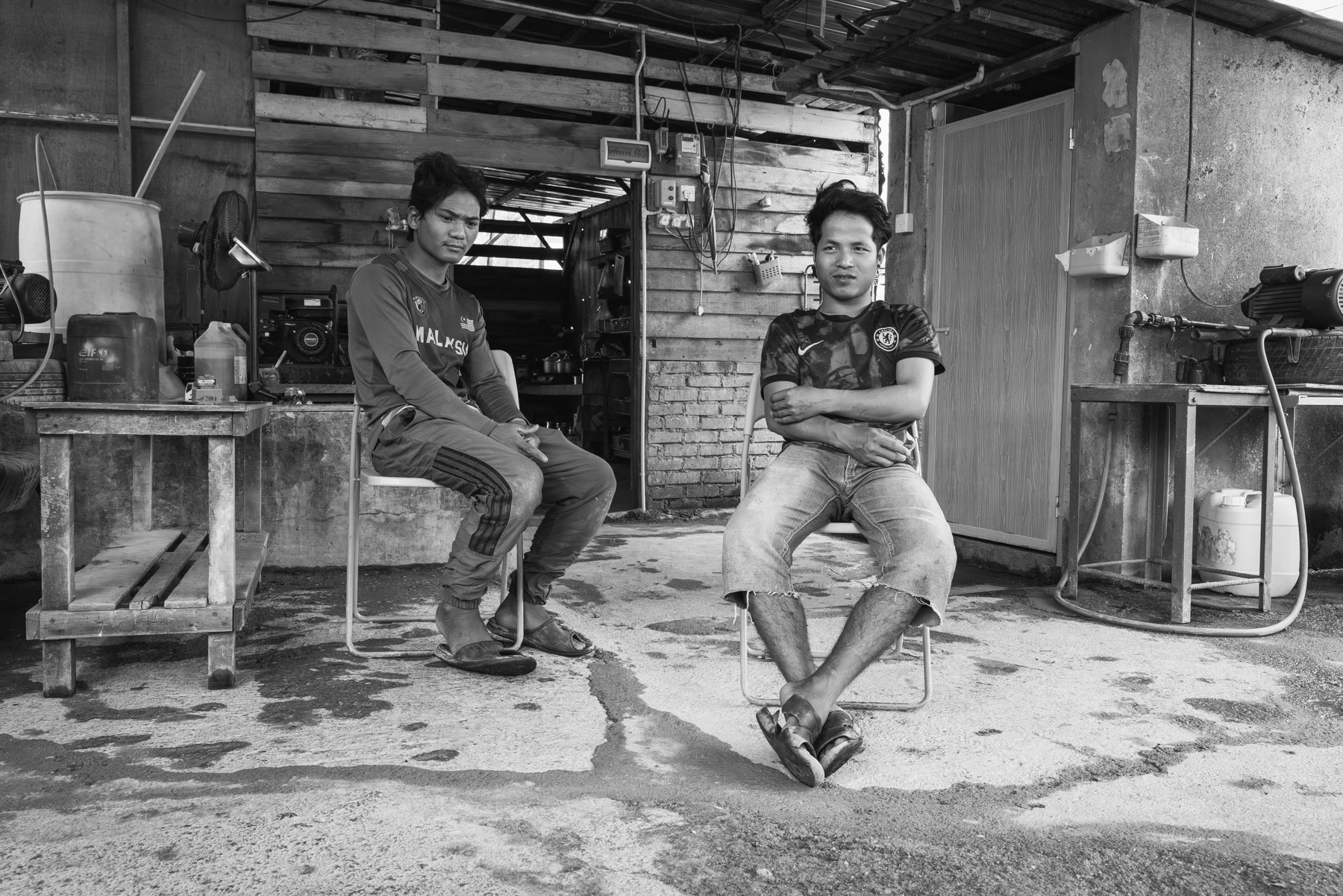
Chin refugees from Myanmar working and living in farms in Cameron Heighlands in Pahang, Malaysia, May 2024
